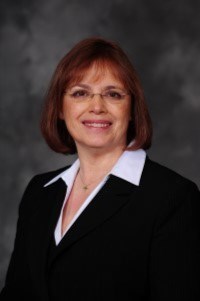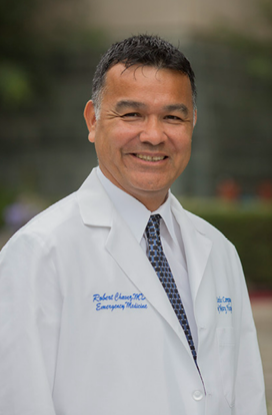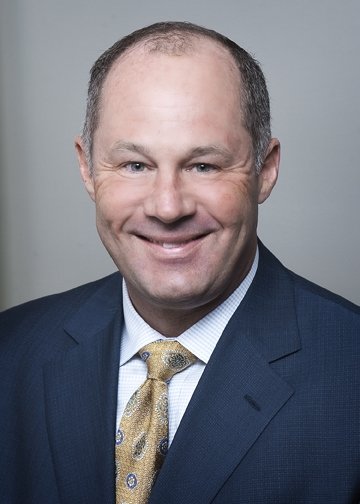Written by Andrew Fenton, MD, FACEP
Napa Valley Emergency Medical Group
This article was originally published in the August 2023 IEPC Newsletter. Click here to view a PDF of the newsletter.
It was the height of the Covid-19 Delta surge when we first received a letter from the Anthem Blue Cross Special Investigations Unit (SIU). In the letter, Anthem wrote, “In the spirit of education and collaboration…” my Emergency Department (ED) group would be placed into their Pre-payment Review Program (PRP) and most of our Level 5 bills for care already delivered would be denied and not paid. A letter to the Anthem Blue Cross SIU resulted in a patronizing and dismissive response from them and reiterated their policy that they would not pay even one cent for what would be about 80% of our Level 5 charts claiming the Medical Decision Making (MDM) documented did not support the charge.
My group (Napa Valley Emergency Medical Group) is a small (seven partners) independent democratic group. We have tried to contract with Anthem Blue Cross (ABX) in the past but have never been offered more than the unsustainable offer of 120% of Medicare rates. We knew our percentage of Level 5 charts and our charges were average or slightly below average and it was unclear why we were targeted and placed into their PRP. What was clear was that, because ABX members make up a significant percentage of our patients, our group would take a substantial financial hit from the health insurer’s unprecedented action.
Through the Independent Emergency Physicians Consortium (IEPC) we found out we were one of many small, independent groups that were targeted by ABX. We also learned ABX forced both noncontracted and contracted groups into their PRP and refused to pay for the care of thousands of ER visits where their subscribers received care, costing emergency physicians millions of dollars across the state. We learned many groups came to together to rightly bring legal action against ABX and their unlawful behavior.
We reached out to our billing company, Physicians’ Choice (PC), who quickly noticed these denials and set up meetings with ABX. In these meetings, ABX PRP coders gave little reason why the MDM and charts did not justify the code other than saying “it just doesn’t.” We learned ABX PRP letters and staff appeared to be written and signed by people who had no experience in E & M coding and were primarily involved in their fraud division and law enforcement.
This understanding crystallized even further when we discussed our situation with the California chapter of the American College of Emergency Physicians (California ACEP). The Chapter had been meeting with legislators and wrote letters to the Department of Managed Health Care (DMHC), whose purpose is to regulate managed health care plans like Anthem Blue Cross. The Chapter correctly reminded the DMHC that health plans can deny reimbursement for emergency services only when they believe the care was never delivered or when the billing claim is incomplete. ABX was not saying that the services were never performed, nor that the medical chart and billing paperwork submitted wasn’t satisfactory, but instead was putting forth the novel theory that these claims were “incomplete” solely because the level of the coding attached to them. ABX even suggested their PRP was designed to eliminate provider “fraud” and upcoding. Apparently convinced or confused, DMHC took no action against ABX.
It was clear the potential impacts of these decisions by ABX, and the indecision by DMHC, could have devastating affects not only on my group, but all of emergency medicine. If the actions of Anthem’s PRP were allowed to stand and they could pay nothing, and if this spread to other insurers, and other groups, it could completely unravel the emergency care safety net. One could even imagine this spreading to other medical specialties.
My group concluded we could not afford to join the pending lawsuit against ABX, but we were committed to attack the problem from multiple fronts using all the resources we had at our disposal. First, we wanted to work with our hospital to find out if they were paid for the same emergency visits and at what level of coding. We knew we would need to continue to engage all of organized medicine at every level. We also decided we needed to reach out to our local legislators while working to highlight this injustice in the press.
When we were able to access the hospital data for the same visits where our claims were denied we learned that the hospital was being paid for the emergency services delivered. We also learned that in nearly all these visits, the hospital was being paid at the same level of coding as we were billing. Though the coding for hospitals for ED visits and for ED physician services are not identical they are similar (both coded level 1-5) and it was illogical for ABX to pay the hospital for a level 5 charge while denying the level 5 physician charge claiming it was fraudulent.
Because of the potential scope of the problem, and with this new information, we reached out to the California Medical Association (CMA) who had previously been working with California ACEP on this issue. We began a dialogue with them so that they could better understand our situation and we signed a Business Services Agreement with the CMA so that we could share information and so they could delve into the specifics of our problem.
We contacted national ACEP and met with national leaders to explain the unique nature of our issue, while showing how it was similar to other payer issues ED groups have faced in other states including groups in Indiana with ABX. Soon after, ACEP produced a letter to the California Congressional delegation and to the Centers for Medicare & Medicaid Services (CMS), co-signed by California ACEP, explaining the injustice. In the letter, ACEP highlighted how Anthem was attacking smaller, independent groups and that it was paying the hospital for the same visit while denying physicians fair payment.
With the assistance and participation of California ACEP, my partners and I met on multiple occasions with our State Senate and Assembly legislators to educate them about Anthem’s actions. We also met with the office of our local Congressman. After he threw out the first pitch at our local minor league baseball game, I caught up personally with my congressman to bend his ear about my group’s problem. They were all sympathetic that our small business was being targeted by a company that annually profits billions of dollars.
Collectively, we produced an article with me as author that was published in “MedPage Today” and which garnered significant social media hits and attention: https://www.medpagetoday.com/opinion/second-opinions/100554. With ACEP’s coordination, and with others, I completed a video interview highlighting the injustice of the ABX denials on Medscape: https://www.medscape.com/viewarticle/980278. Additional interviews were undertaken with reporters from with New York Times, California Healthline, and Fierce Healthcare (though never published). The media attention reached the popular Dr. Glaucomflecken, ophthalmologist and comedian, who posted a tweet on Twitter making a parody of the ridiculous ABX denials that received over 6,500 “Likes” and 1500 “Retweets”: https://twitter.com/DGlaucomflecken/status/1603122806161813504
Meanwhile, ABX continued its PRP and continued to deny payment on most of our 99285 claims. Many claims were over a year old. Our billing company appealed each denial. ABX required materials to be sent in via the US Postal Service so our billing company printed and sent entire charts, sometimes multiple times by certified mail after the charts were “lost” per ABX.
We continued to try to understand why our groups was targeted. We confirmed the percentage of Level 5 charts billed by my group and our charges for a 99285 were at or below average. We were able to deduce that almost all denied were patients discharged home. But the methodology ABX was using for coding charts was unknown and it did not seem to match with established coding criteria. We were unclear what we needed to do or what “pass rate” would need to be achieved to be removed from the PRP.
The CMA continued to escalate the issue and wrote a letter to the DMHC Director highlighting the illegality of Anthem’s actions. Soon after, a meeting was arranged with the DMHC. We were able to explain to the Department in detail our situation, and how the nonpayment by Anthem was impacting our practices. They seemed genuinely surprised that we had hundreds of charts in limbo and on appeal with no action by ABX. We explained that we had very little understanding why our groups were selected for the PRP, why certain charts were denied and what coding criteria was used, and how we could get out of PRP. We conveyed the impact Anthem’s “no pay” scheme was having on our small group and our ability to stay afloat.
We were hopeful DMHC would take an enforcement action against ABX, but they informed CMA and us that no action would be taken. Perhaps with DMHC coaxing, soon after Anthem reached out to us to arrange a meeting. The call was illuminating. ABX was represented by Carl Reinhardt, who oversees their PRP. We learned the Pre-payment Review Program was the idea of Bob Mays, Vice-President at Anthem Blue Cross, and Carl’s boss. We were told they review all our 99285 charts and only when their coders believed 80% of our charts were coded correctly would we be removed from PRP (our “pass rate” was 50%). Carl said they look at “fallouts” (patients discharged home) and these are the charts that are scrutinized. He said they use AAPC-certified coders who use AMA and CPT guidelines to review charts to determine the correct code based on MDM, but final diagnosis was an important part of their final decision on the code assigned. Wanting to learn more we set a date for another meeting where we would look at actual charts.
Along with representatives from our billing company, I met with ABX PRP coders and the PRP leadership (Carl Reinhardt, Troy Bird, Richard Mossler). Bird and Mossler (whose names are on all the PRP letters we received) said nothing and kept their cameras off. Our billing company, Physicians Choice (PC), submitted four charts for review that we believed were downcoded, and Anthem submitted charts they said were upcoded.
Reviewing these charts, we learned that ABX was using a Marshfield audit tool to determine the complexity of Medical Decision-Making (MDM) and applying it in a manner like in primary care. As employed this tool gave no credit for workups performed in the ED and only the “workup planned” AFTER discharge, similar to a primary care doctor planning on a workup for a patient’s medical complaint. Our PC coders interpreted “workup planned” as the workup in the ED and ABX viewed this as workup recommended after leaving the ED. For example, in a patient with Chest Pain, higher complexity would be assigned by our coders if the patient received a Chest CT or serial EKGs/cardiac enzymes to rule-out life-threatening pulmonary embolism or acute myocardial infarction. Anthem would not give any credit if these tests were performed in the ED, and would only if they were instead recommended in the discharge paperwork (laughable logic).
We next learned that there was a significant difference between how our PC coders and the ABX coders determined “Risk” as it applies in the MDM contributing to the final billing code. Our coders viewed “Risk” as the threat to life or bodily function associated with the Chief Complaint and Anthem viewed “Risk” as the threat to the patient AFTER the completion of the ED workup. Again, in an ED patient with Chest Pain, this would be considered by our coders as a high-risk complaint because the risk of heart attack (myocardial infarction) or multiple other dangerous etiologies. ABX stated because those high diagnoses were ruled out by testing in the ER and the patient is discharged, they are automatically at low (or moderate) risk. This reliance on Final Diagnosis is not new for payers underpaying physicians, but the logic Anthem applied as it relates to how charts are coded seemed to be a new wrinkle and clearly conflicted with CPT and CMS determinations.
One of the charts we submitted for review that was initially denied involved a patient with dysrhythmia treated and sent home (denied March 2022 and paid on appeal on May 2023, 14 months later). We were aware that part of Anthem’s PRP was the denial of EKG interpretations and that ABX was bundling this within the overall E&M code (though this was not supported by CMS and CPT that state that contemporaneous EKG interpretation is a separate billable service). In a detailed review of Anthem coders’ scoring of the chart we learned that they were also not giving credit for EKG interpretation in the MDM. It seemed their PRP team was ordered to not pay for EKG reads and this spread to how they coded each chart. Further discussion made it clear their coders were not giving credit for any ordering and interpreting of any cardiac electrophysiological tests (EKGs, rhythm strips, cardiac monitoring/telemetry) into the MDM. They were doing the same with bedside ultrasounds. Carl Reinhardt admitted this was a mistake and that ABX cannot deny payment for EKG interpretation and also entirely discount the EKG interpretation in the MDM.
The meeting ended with a promise of another meeting to discuss the impact of this revelation and other matters including the delays in the PRP appeals process, and how ABX is handling the new CPT guidelines for ED E & M codes. It was clear ABX had no defensible position for how they were coding charts and they admitted by mishandling EKG interpretations they wrongly downcoded most of the charts we reviewed. It was clear this had a significant impact on the final assigned CPT codes and this error would impact the codes assigned to charts by ABX as far back as 2021 when we were first placed into the PRP. We expressed to ABX that the admission by the PRP coders that the methodology they use in reviewing MDM is flawed would mandate that all denied 99285 claims that included an EKG or telemetry interpretation, or a bedside ultrasound, be re-reviewed by the PPR appeals team and be assigned a new updated code.
At the beginning of our third meeting with Anthem, Mr. Reinhardt informed us that my group would be removed from the Pre-payment Review Program. He again acknowledged that ABX and PRP coders have not been considering cardiac interpretations in MDM coding decisions. Rather than go back and investing resources recoding those charts it made business sense for ABX to just pay them and all the charts on appeal as coded by our billing company. Mr. Reinhardt also said he was aware that these errors in ABX coding has affected multiple groups in PRP and ABX will have to decide if they will go through each group’s denials and recode them.
We are now working with ABX to make certain that the backlog of unpaid charts gets paid. CMA continues to assist us in this regard and has had a number of meetings with the DMHC to review Anthem’s PRP program and its negative impacts. Part of this conversation is if DMHC will force ABX to pay the 15% interest owed on these unlawfully denied claims.
Meanwhile, I was recently contacted by an emergency medicine colleague in Kentucky whose small independent group was contacted by Anthem Blue Cross and informed they were being placed into Pre-payment Review. Like a weed, if these payer cheating tactics are allowed to exist, they grow and spread. Only when regulators, or the legal system, severely punishes them financially will they be less likely to hatch these schemes.
I am hopeful that with the new revelations of their flawed coding methodology, Anthem Blue Cross will roll back its Pre-payment Review Program entirely. In the meantime, I encourage any group in the PRP to contact the CMA, and California ACEP, and we have the contact information for Mr. Reinhardt who has offered to meet individually with each affected group. Reportedly, ABX is releasing an updated reimbursement policy for emergency medicine physicians that will take effect January, 2024. Meanwhile, the changes to CPT Documentation Guidelines for ED E/M Codes 99281-99285 are in force. These also include significant clarifications and the new guidelines state, “The final diagnosis for a condition does not in itself determine the complexity or risk as extensive evaluation may be required to reach the conclusion that the signs or symptoms do not represent a highly morbid condition.” The new guidelines will make it difficult for payers, like Anthem Blue Cross, to continue their practice of downcoding.
Running a small, independent ED group has many rewards, but also offers many challenges. One of the greatest is standing up to multibillion dollar insurance companies to be fairly reimbursed for the lifesaving care we deliver. To assist with this, it is vitally important we all work with one another as a team. This is one of the most important lessons I learned from this experience. By being involved with IEPC, California ACEP, and the CMA I have developed friendships and contacts that were invaluable when we came under attack. It also reinforced that our best friend was our billing company, Physicians’ Choice, who fought alongside us all the way. I also learned, that when threatened, though we are small group we can fight like a badger and must do everything possible to stay alive. We reached out to every ally we could think of, utilized the media and press, and looked for relief from the legal system, regulators, and politicians. Not only did I interrupt my congressman trying to enjoy a beer and hot dog at a baseball game, I submitted several cases to Judge Judy answering, “Have you been cheated?” In the end, it was all worth it.






